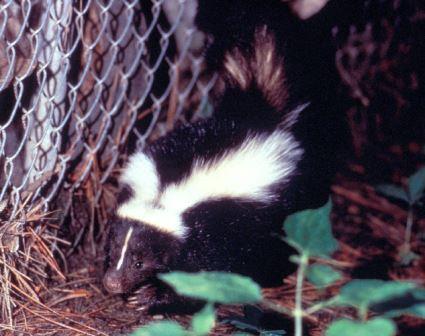 2014 has already proven to be a very active year for rabies in Arizona. So far this year, there have been 70 animals reported positive for rabies. Last year at this time there were 40 animals reported positive. We’re seeing an especially high number of rabid skunks this year. 39 skunks have been reported so far, all of them coming from Southern Arizona. We have noticed that every few years we have an increase in rabies activity (an epizootic) among wildlife in Arizona. Arizona’s 3 most common animal reservoirs are bats, foxes, and skunks.
2014 has already proven to be a very active year for rabies in Arizona. So far this year, there have been 70 animals reported positive for rabies. Last year at this time there were 40 animals reported positive. We’re seeing an especially high number of rabid skunks this year. 39 skunks have been reported so far, all of them coming from Southern Arizona. We have noticed that every few years we have an increase in rabies activity (an epizootic) among wildlife in Arizona. Arizona’s 3 most common animal reservoirs are bats, foxes, and skunks.
These animals carry their own distinct rabies virus variant or “strain”. When rabies activity within these animal groups increases (like what’s happening with skunks in Southern Arizona) the risk of rabies “spillover” into other mammal species, such as bobcats, coyotes, javelinas, cats, dogs, horses, or cows, increases. When spillover rabies occurs in domestic animals, the risk to humans is increased. That’s why it’s important to keep rabies vaccinations up-to-date for your pets and livestock. Unvaccinated dogs, cats, and ferrets exposed to a rabid animal may have to be euthanized or kept under a strict quarantine for 6 months. So don’t take that risk and vaccinate your pets!
In Arizona, we see an increase in rabies activity in wildlife this time of year. People who are camping, hiking, or hunting should avoid touching, handling, or adopting wild or stray animals. Hunters should always wear gloves and protective eyewear when field dressing game to protect them from many diseases, including rabies. You should always secure all food sources so not to attract wildlife.
Lastly, notify your local animal control or Game and Fish if you see wild animals acting out of the ordinary or a large number of dead skunks or foxes. Rabies in humans is 100% fatal, but the good news is that it is 100% preventable through prompt appropriate medical care. So be sure to call your healthcare provider and county health department if you are bitten by a wild animal or have been exposed to their saliva.









